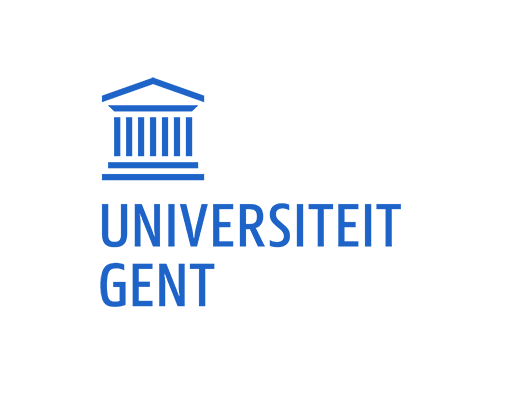Research Project
Urban sustainability transitions as spaces for experiential learning
Running from 2016 to 2019.
Funded by UGent - BOF.
Today, towns and cities all over the world, are engaged in so-called ‘sustainability transitions’ (STs) and develop projects and activities to move towards more social justice and sustainable development. Urban sustainability transitions are long-term structural transformation processes in complex urban socio-technical systems. Because there are no suited institutions available with the power to provide a solution, a way out of unsustainability is often sought in ambiguous ‘urban governance’ networks, in ‘new political spaces’ that emerge in what Hajer calls an ‘institutional void’: there are no generally accepted rules and norms according to which policy making and politics is to be conducted. Facing the impotence of existing decision-making institutions to realise adequate sustainability transitions, appeals have been made to ‘learning’ as a leverage to decisive action. Sustainability transitions are thus often framed as a matter of ‘learning by doing’ and ‘doing by learning’, i.e. as an outcome of experiential and experimental learning.
Despite omnipresent references to the importance of learning our way out of sustainability problems, the notion of learning and its role in relation to STs is very poorly conceptualised and empirical research on how learning actually takes place in concrete ST initiatives is very rare. Both transition scholars and educational researchers emphasise the need for theoretical as well as empirical research that contributes to a better understanding of the learning that takes place in the context of STs. The latter is the focus of this project. Drawing on pragmatist educational theory (e.g. Dewey’s theory of experience and education), transition studies (e.g. the Multi-Level Perspective on sustainability transitions) and governance studies (e.g. Hajer’s work on institutional void and new political spaces) we developed a transactional conceptual framework for investigating experiential learning in ST experiments which is published in the journal Environmental Innovation and Societal Transitions.
Currently, we are conducting case studies. Using analytical methods inspired by both practical epistemology analysis and dramaturgical analysis, we investigate workshops in the context of a project that gathered a variety of actors in view of upscaling short food supply chains. Farmers, retailers, policymakers, researchers, representatives of large organisations such as schools, hospitals, big companies, etc. came together in workshops in order to create and discuss different alternative scenarios for realising this ambition. The city of Ghent developed a local food strategy, ‘Ghent en Garde’, that strives to restore the relationship between agriculturists and urban citizens. One of the strategic goals of ‘Ghent en Garde’ is to stimulate the Short Food Supply Chain (SFSC), thereby creating a close relationship between producers and consumers of local food. The municipality of Ghent launched a research project that strives for upscaling current and to be created SFSC initiatives as a central objective. Upscaling, here, is understood as the transition away from the supply from an individual producer on the SFSC market towards combining SFSC supply as well as creating equal, strategic B2B partnerships with the predefined clients: the catering industry, large-scale consumers and retail. The Flemish Research Institute for Agriculture, Fisheries and Food collaborated with the Centre for Sustainable Development at Ghent University to conduct this project – contracted by the municipality of Ghent. They co-produced different scenarios together with a variety of local stakeholders (e.g. SFSC actors, civil servants, experts). Our study focuses on the learning-by-doing that took place in the workshops where the scenarios were developed. Preliminary findings have been presented at the European Conference on Educational Research, the 5th Swedish Pragmatism Colloquium on Education and Transaction as well as research seminars at Ghent and Uppsala University. Several empirical articles are in development.
Steden en gemeenten wereldwijd streven vandaag naar zogenaamde ‘duurzaamheidstransities’ en zetten projecten en activiteiten op voor meer sociale rechtvaardigheid en duurzame ontwikkeling. Dergelijke transities zijn structurele veranderingen, op lange termijn, van complexe socio-technische systemen in de stad. Omdat bestaande instituties niet in staat blijken om oplossingen te bieden, wordt een uitweg uit onduurzaamheid vaak gezocht in ambigue ‘urban governance’ netwerken, in nieuwe politieke ruimtes die ontstaan in wat Hajer noemt ‘een institutionele leemte’: een situatie waarin geen algemeen aanvaarde regels en normen bestaan over de politiek en het beleid dat gevoerd moet worden. Gezien het onvermogen van traditionele manieren en kanalen van besluitvorming om grondige duurzaamheidstransities te realiseren, wordt vaak gewezen op het belang van ‘leren’ om doorbraken mogelijk te maken. In dit project willen we onderzoeken hoe nieuwe politieke ruimtes die ontstaan in de context van duurzaamheidsinitiatieven, en die gekenmerkt worden door institutionele leemtes, ook als ‘educatieve ruimtes’ kunnen fungeren. Vaak worden duurzaamheidstransities immers gezien als een kwestie van ‘al doende leren en al lerende doen’, als een uitkomst van een experimenteel en ervaringsgericht leerproces. Maar zoals Dewey al benadrukte, zijn ‘ervaring’ en ‘experiment’ geen concepten die voor zich spreken. Hun betekenis en educatieve waarde zullen we verder onderzoeken, zowel theoretisch als empirisch.


